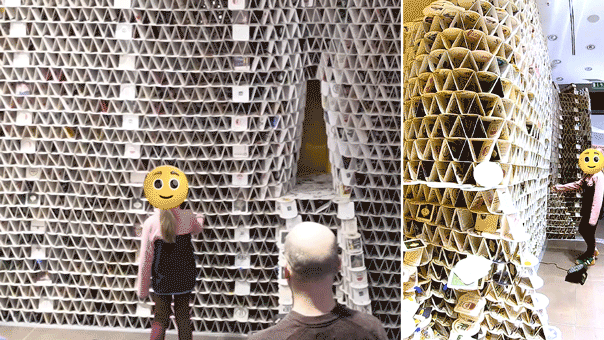
Most of us have hobbies or habits, but what exactly distinguishes those things from addictions? Sure, your hobbies may not seem detrimental to your well-being, but they can certainly be addictive, right?
For instance, would you qualify video games as a hobby? Even if someone plays for hours each day, or forgoes sleep and human interaction to focus on a role-playing game? Or what about shopping? Lots of people love to shop, but could they be obsessed with the thrill of finding a bargain rather than actually owning the items in their cart?
Those activities aren't merely hobbies at this point, or even bad habits; they're more along the lines of addictions. And, according to Daily Telegraph columnist Damian Thompson, they could be ruining your life.
"More and more of the goods we’re surrounded by are sneakily drawing us into addictive behavior," says Thompson, who recently penned "The Fix: How Addiction is Taking Over Your World." In the new book, Thompson outlines the daily rituals or guilty pleasures that give us our much needed "fixes": things as obvious as alcohol or painkillers, or as innocent as cupcakes and iPhones.
"There's no doubt that people are moving toward more compulsive patterns," notes Thompson. "The pace of life is accelerating … so the need for rewards must accelerate, too."
And unlike our ancestors, we don't need to seek out those rewards — there are plenty of services that are more than happy to provide them. For starters, the internet caters to every hobby, habit or vice virtually instantaneously. You can check email, stream hardcore pornography, play games against your friends, or even watch whole seasons of your favorite television shows at once.
"The box-set — and now Netflix — allows us to binge," says Thompson, who admits to "mainlining" episodes of "Dexter" at the moment. "I don’t think people are aware they’re even experiencing these urges [to binge]," he says. "They don’t ask themselves, after watching an episode of 'Dexter,' why they’ve got to watch another one right after it."
Sugary food, too, is becoming more of an addiction. Thompson explains how mini-desserts — especially the countless workday treats we use to reward ourselves — allow us to indulge in junk food unlike ever before. He cites a "cupcake craze," specifically.
"The cupcake is the most essentially evil invention for people who enjoy a sugar fix, like me," says Thompson. He argues that cupcakes and other cute desserts have been sanitized, romanticized, and nostalgia-fied to the point where adults sometimes squeal like children whenever they're near.
But perhaps one of the worst offenders is the smart phone. "Our entire day … is ruled by the iPhone," believes Thompson. "We're talking about a gateway," Thompson further explains. "A whole generation of people are becoming addicting to spending time online … digitally aroused, entertained and satisfied."
"Everything is made easier for you."
But while an iPhone addiction seems trivial, Thompson argues that it's now difficult for most of us to live without the temporary "fixes" we get from our gadgets. "It's not so much harming you on the outside, but it has a corrosive effect on human interaction," he believes. "We’re becoming more gossip-centered society.
"But there are people out there who will charge enormous amounts of money to help with your addictions," he continues. "There's a lot of money in it."
Thompson himself sought help for his addiction to alcohol years ago, even though he doesn't qualify any these addictions as diseases that need to be treated as such. "[Alcoholics Anonymous] was very helpful to me," he states, "but I never bought the line that I was suffering from a clinical disease."
Instead, Thompson feels that that our addictive behaviors are the product of advancements in technology and marketing, which allows manufacturers and advertisers zero in on our tastes and preferences.
"This is the paradox at the center of it. This is science getting better, smarter," says Thompson. "But we also have to recognize that cancer treatments are better because of advancements in technology."
And since society is always striving for that next big breakthrough, we're sure to be seeing more and more habits, or vices, that we feel we just can't live without.
Our job, then, is to control those impulses.
"We need to say, 'No, I’m not going to eat another Cinnabon,' or, 'I’m not going to go on [indulging my obsessions] because I see a nice little buzz,'" says Thompson.
“Let’s put it this way: We’re going to be defined by the moment at which we can say no to temptation," he adds.
None of us are exempt from that temptation, either. And surprisingly enough, Thompson claims that none of us are free of addiction — be it the need to glance at a smart phone or add to a prized music collection.
“To anyone reading 'The Fix,' I'd say this: See if you can find yourself in here," he suggests. "Because you will."








































